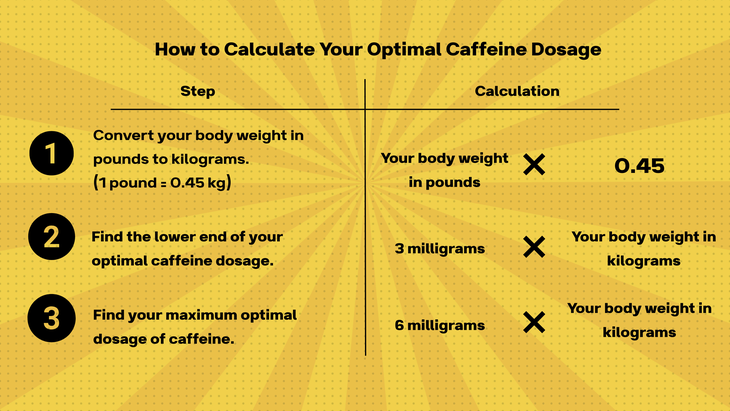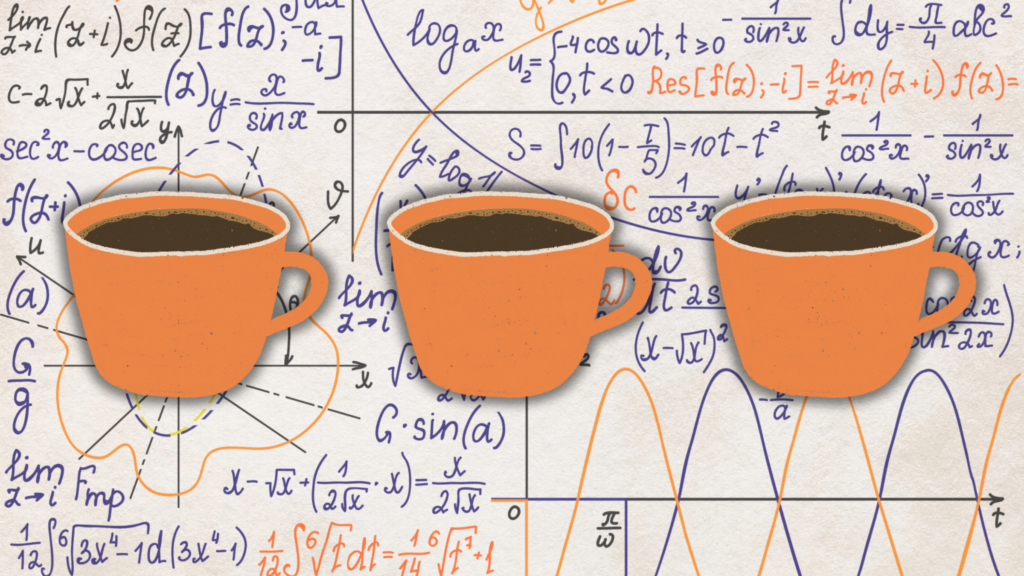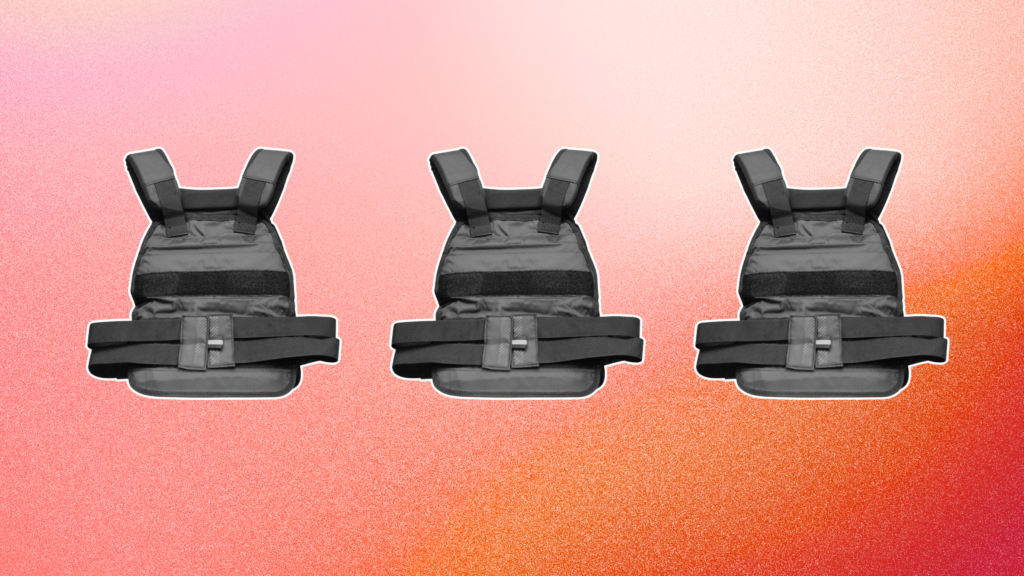It’s easy to judge when you spot someone cruising out of your local coffee shop with an extra-caffeinated beverage in hand. The Last of Us star Pedro Pascal knows this all too well. He raised eyebrows earlier this year after paparazzi snapped a photo of his Starbucks order: a quad espresso with two extra shots, a drink Jimmy Kimmel later dubbed a “methaccino.”
But Pascal is far from the only person to use high levels of caffeine to kickstart the day—or to enhance performance. Research suggests that about 74 percent of elite athletes use caffeine as a performance-enhancing tool before or during a sporting event. Endurance athletes are the most likely to do so. Studies also conclude that caffeine has positive effects on endurance (by up to four percent, according to a 2021 study), on reactive agility time, and on both alertness and attention.
As a former cross-country runner in college, I get the allure. Several of my teammates and I regularly drank coffee before meets in an attempt to rev ourselves up and maybe get a competitive edge.
But caffeine hits everyone differently. Therefore, it’s challenging to determine the exact amount needed to enhance your performance. Something like Pascal’s order, which has an estimated 450 milligrams of caffeine (a single shot of Starbucks espresso contains about 75 milligrams of caffeine), could make some too jittery to perform well. For others, a methaccino might be optimal.
But I wanted to know if a) there was a way to calculate how much caffeine someone would need to see real improvement in their sport, and b) how to do it. To get those answers, I interviewed a caffeine researcher, sports dietitians, and a sports medicine physician.
Here’s what they had to say.
Is There a Form of Caffeine That Works Best?
“For the most part, athletes consume caffeine via direct supplementation, typically through sports supplements,” says Jason Tallis, a nutrition researcher and associate professor in the Centre for Physical Activity, Sport and Exercise Science at Coventry University.
Caffeine in Liquid Form (Coffee and Energy Drinks)
According to Tallis, when caffeine is consumed in this medium, it enters the bloodstream almost instantly. “You’ll hit peak blood levels about 30 to 45 minutes after consumption.”
Pills and Powders
“Caffeine in pill or powder form provides a precise dose and is quickly absorbed, which is beneficial for timing performance,” says Kacie Vavrek, a nutritionist and board-certified sport specialist in dietetics at The Ohio State University Wexner Medical Center.
After you ingest caffeine in pill form, Tallis says it needs to be dissolved before it can be absorbed, which may take between ten and 30 minutes. Peak absorption happens around 45 to 60 minutes after consumption, he says.
Gum
Caffeinated gum or mouth rinse works the fastest because the oral mucosa absorbs it quickly, so it doesn’t need to be digested. “They can get you to peak blood levels in just five to 10 minutes,” says Tallis.
Keep this in mind, though: caffeine probably won’t transform an average exerciser into a superstar. “It’s unlikely to win you the race, but may give you a slight boost,” says Dr. Andrew Gregory, a sports medicine doctor and professor in the Division of Sports Medicine at Vanderbilt University Medical Center.
Despite all the supplements with enticing advertising, most of them don’t actually work, says Dani Singer, a fitness nutrition specialist and personal trainer. “Caffeine is one of the few exceptions.”
How to Calculate the Amount of Caffeine That Will Improve Your Workouts
While the effects of caffeine on performance can vary, the way to calculate the amount is pretty clear-cut.
The International Society of Sports Nutrition (ISSN) reports that having three to six milligrams of caffeine per kilogram of body weight has been shown to improve exercise performance.
Here’s the formula you can use:

- First, calculate your weight in kilograms: since one pound equals 0.45 kg, multiply (your weight in pounds) x (0.45 kg) = your weight in kilograms.
- To find the lower end of your optimal caffeine dosage: multiply (3 mg) x (your weight in kilograms)
- To find your maximum dosage of caffeine: multiply (6 mg) x (your weight in kilograms)
In my case, I weigh 130 pounds (or 58.9 kilograms), so that means I may need between 177 and 353 milligrams of caffeine to boost my performance.
Could a Lower Dosage of Caffeine Work?
The ISSN also notes that it’s not clear how little caffeine someone would need to take to see an impact, but the amount may be as low as two milligrams per kilogram of body weight. (If I were to plug this into the above formula again, I might see some benefits if I consume around 117 milligrams of caffeine.)
“Optimal caffeine dosing is highly individualized,” Tallis says. “Consumers should start with a lower dose than recommended and monitor their response before increasing.”
When’s the Best Time to Ingest Caffeine Before a Workout?
The ISSN says it depends. While most people supplement with caffeine 60 minutes before exercise, the right timing may depend on the source, with things like chewing gum taking less time to kick in than caffeinated capsules.
Too Much Caffeine Will Hurt Your Performance
Keep this important caveat in mind: per the ISSN, high doses of caffeine, around nine milligrams per kilogram of body weight, will likely have adverse effects on your performance. Using that formula again, my too-high caffeine limit would be 530 mg—that’s about 18 percent more caffeine than what’s in Pascal’s methaccino.
Too much caffeine can easily make you feel sick, raise your heartbeat, give you a headache, or cause diarrhea—all of which would throw a wrench in your performance. Anxiety might join the party, too, and disrupt your sleep. “For athletes, poor sleep and heightened stress can reduce training quality and increase injury risk,” Vavrek points out.
Don’t Exceed This Amount of Caffeine in a Day
Caffeine is usually safe for most healthy adults, but it may not be a good option for people with underlying health conditions like high blood pressure or those who take medications that may interact with caffeine, like drugs to treat asthma or heart conditions, Tallis says. That, combined with supplements being unregulated by the Food and Drug Administration (FDA) before they hit the market, means it’s a good idea to check in with your doctor first if you’re interested in taking a caffeine supplement.
The FDA recommends capping your caffeine intake at 400 milligrams a day, although that’s a blanket suggestion and is based more on amounts that are linked with side effects, Tallis says.
In the case of Pascal’s methaccino, the amount of caffeine it contains may be suitable for some people, especially those with a higher body weight and who typically tolerate caffeine well.
But, again, everyone is different. “Even doses as low as three milligrams per kilogram can cause side effects in some individuals, including headaches, anxiety, insomnia, increased heart rate, and nausea,” Tallis says. “These effects become more prevalent and severe at higher doses. It’s important to consider total daily caffeine intake, including dietary sources, as supplementation will add to this total.”
Ultimately, it can take some tinkering to figure out the right amount of caffeine to boost your performance. That’s why it’s best to start slow, if you want to try this at all. Gregory also recommends trying caffeine outside of important performance moments to see how you do first. “Don’t add something new on the day of a big race or game.”
Want more Outside health stories? Sign up for the Bodywork newsletter.
Source link











